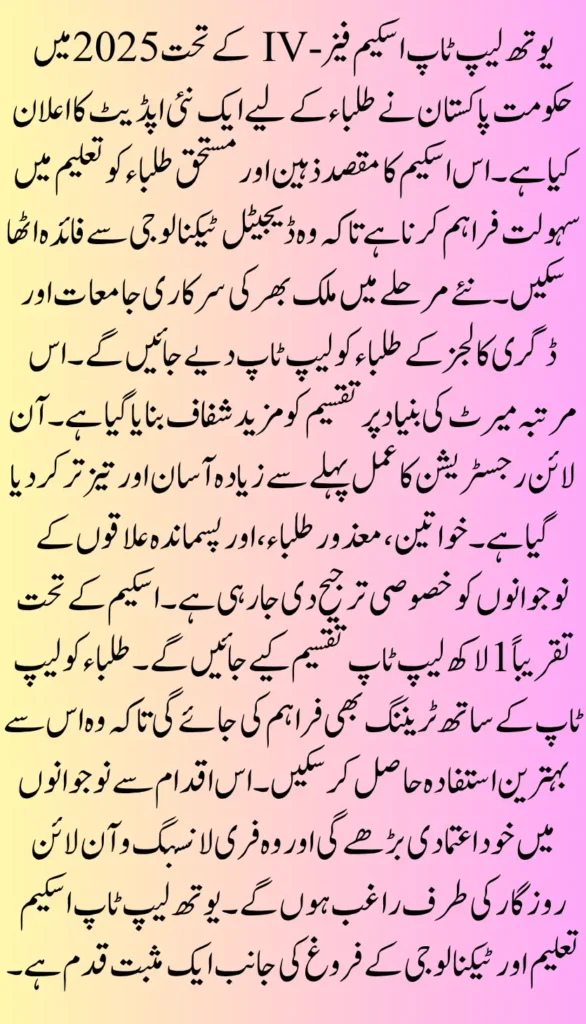Laptop Scheme Phase-IV
The Youth Laptop Scheme Phase-IV is a Government initiative aimed at empowering students by providing them with laptops. It targets eligible youth, primarily students, to enhance their digital skills and educational opportunities. The scheme supports access to modern technology for learning and development. It encourages digital literacy and helps bridge the technology gap among students. The program is part of a broader effort to promote education through technology. It facilitates online learning and skill-building in today’s digital age. The scheme is expected to boost the academic performance and future employability of young learners.

Main Objective of This
The main objective of the Youth Laptop Scheme Phase-IV is to provide laptops to eligible students to promote digital literacy and improve access to educational resources. It aims to empower youth by enhancing their technical skills, supporting online learning, and reducing the digital divide. Ultimately, the scheme seeks to prepare students for better academic performance and future employment opportunities in a technology-driven world.
Eligibility Criteria
The scheme is exclusively for students enrolled in government or government-recognized educational institutions. Eligible students must be pursuing Bachelor’s, Master’s, or MPhil/PhD programs. Only those who complete their registration by the specified deadline will qualify for the scheme.
How to Get a National Identity Card for Overseas Pakistanis: Simple Method
Registration Process
Students must register or update their information by visiting https://laptop.pmyp.gov.pk/. They need to provide their CNIC number, university name, program details, and other school information. Make sure to complete the registration before the deadline.
Benefits of This Program
- Helps students study better with easy access to digital learning tools.
- Supports online classes and research work.
- Improves computer skills needed for future jobs.
- Makes it easier to complete assignments and projects.
- Reduces the cost of buying a laptop for students.
- Encourages equal learning opportunities for all students.
Conclusion
The Youth Laptop Scheme Phase-IV is a government program designed to provide laptops to eligible students studying in government or recognized institutions. Its goal is to promote digital literacy, support online education, and enhance students’ academic and technical skills. Students enrolled in Bachelor’s, Master’s, or MPhil/PhD programs who meet the eligibility criteria can apply online before the deadline. By providing laptops, the scheme helps reduce educational barriers, improves learning opportunities, and prepares youth for future job markets.
FAQs
1. Who can apply for the Youth Laptop Scheme Phase-IV?
Only students enrolled in government or HEC-recognized public institutions in Bachelor’s, Master’s, MPhil, or PhD programs are eligible. They must also meet academic and enrollment criteria.
2. How can I apply for the laptop scheme?
Students must visit the official website https://laptop.pmyp.gov.pk/ to register or update their details, including CNIC number, university, program, and academic information.
3. What is the last date to apply?
The registration deadline is May 20, 2025. Students must complete their application before this date to be considered.
4. Can private university students apply for this scheme?
No, students from private universities or colleges are not eligible for this scheme. It is only for the public sector or HEC-recognized government institutions.
5. What are the benefits of receiving a laptop through this scheme?
The scheme helps students access digital resources, attend online classes, improve IT skills, complete assignments, and prepare for future job opportunities, all without the financial burden of buying a laptop.
Khyber Pass Digital Identity System New Update 2025
